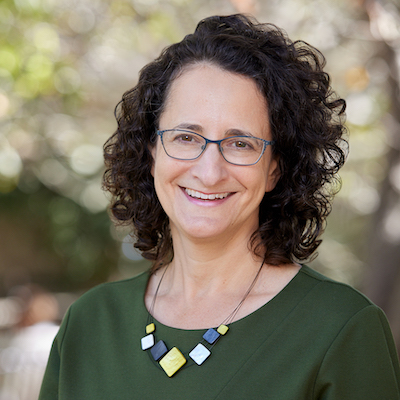5 reasons to hire a fractional CSO
Hiring part-time CSOs can be a cost-effective way to embed sustainability expertise and leadership in your business. Read More

The titles of “fractional corporate sustainability officer” or “fractional CSO” are becoming increasingly common these days.
There is a rising trend of hiring seasoned experts to work on a part-time basis, which could be quantified in days per week or as a percentage of the executive’s time. We see this most in the tech sector and startup world, but it definitely applies to sustainability as well.
I reached out to some fractional executives and their clients to get their takes on the trend. Fractional hiring is not a viable option for everyone, but there are many benefits that employers — such as startups or smaller companies or simply companies early on in their sustainability journey — can get from hiring fractional employees. In full disclosure, my firm Weinreb Group places fractional CSOs, so I’m seeing the impact of this trend firsthand. But for this article, we are relying on the fractionals and their clients. I’ll detail five situations that bring out the benefits.
1. Start small and grow into sustainability
Whatever the size or age of your company, you might want to start small by putting a fractional CSO in place. In this situation, a model that offers the opportunity to begin the sustainability journey with lower costs can be hugely beneficial.
“Typically, these companies cannot justify the investment in a full-time sustainability professional and are delegating the responsibilities to their legal, HR or compliance teams. However, these departments often lack sustainability expertise, are unfamiliar with various reporting standards and frameworks and already shoulder substantial daily responsibilities.” said Lee Ballin, partner and head of ESG Advisory at Full Scope Insights.
Petrosmith Equipment, LP hires fractionally with Full Scope Insights. Michael Duffy, CEO and president, commented: “The partnership has allowed our organization to gain firsthand knowledge of sustainability best practices, as well as take on additional more challenging sustainability initiatives.”
2. Long-term senior expertise for a startup
When establishing sustainability in fast-moving startups and small companies, you need to be responsive and flexible, while ensuring sustainability is fully embedded in the business. If you’re in this for the long haul, you want a senior sustainability professional in the role of CSO — just not full-time.
“The fractional model enables me to scale my personal impact by working with multiple companies at the same time,” said Danielle Azoulay, founder of The CSO Shop, a fractional consulting firm. “The majority of The CSO Shop’s current clients are well-funded startups that have been founded with sustainability as core to mission. But they could use guidance on how to prioritize the work, develop processes to support the initiatives, and advice on how to put sustainability at the center of business strategy as they grow.”
One of The CSO Shop’s clients, Future Origins‘ CEO John Gugel, commented: “The fractional model has helped us fast-track sustainability decisions versus hiring a specialty consulting firm for each functional business area in order to develop a credible path forward. The CSO Shop helps us integrate sustainability proactively into every business decision we make.”
3. Good value: Gravitas and leadership without overhead
Whether you’re at a startup with budget constraints, or working on getting buy-in for a bigger sustainability budget, costs are always a factor. Fractional hiring provides in-depth industry knowledge and experience at good value. It enables you to hire a senior-level person with the standing you need to take your sustainability strategy forward.
“Fractional staff provide a high level of expertise at a reasonable price and give a senior leader more flexibility to address increasingly complex demands from stakeholders,” explained Tom Knowlton, CEO of CSR Talent Group.
4. Quasi-consultant, quasi-full-time employee — maybe something in between
Companies often engage consultants with specific expertise on a project basis or hire full-time employees for more permanent positions. Fractional hiring can be a good alternative to both, as it falls somewhere in between. Fractional arrangements work well when a company needs a long-term commitment from a senior professional, not just a contributor for a particular project.
One benefit of this approach is the institutional knowledge fractional employees gain from working closely with their clients. Mike Hower, founder and principal consultant at Hower Impact, has been working with a major food brand for over a year. “Because I have been in the trenches with the client, I understand their businesses deeply and am able to provide more value than a traditional consultant might,” he said.
5. CSO’s growth in scope and influence
With more companies integrating sustainability into their operations, we’re seeing continued growth in the scope and influence of CSOs. For companies that might not be ready to hire a full-time CSO, the fractional model gives them the opportunity to take a step in that direction.
As Hower commented: “Today’s rapidly evolving corporate sustainability landscape is creating a huge demand for skilled and experienced professionals who can fill gaps of capacity and expertise for everything from strategy to goal-setting to reporting and communication.”
Conclusion
Growing out of a burgeoning gig economy, fractional hiring is a great solution for many companies. Meanwhile, it provides the senior sustainability professionals they hire with financial benefits, autonomy and a better work-life balance.
As a recruiter, I’m watching this practice evolve. Whether fractional hiring is right for your company will depend on many factors. Regardless of your approach, fractional is a trend that could address your needs.













